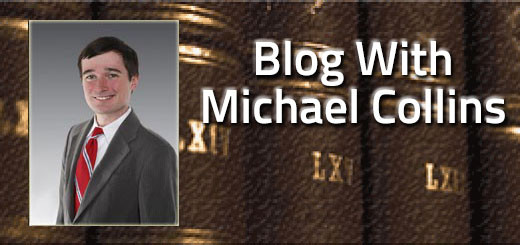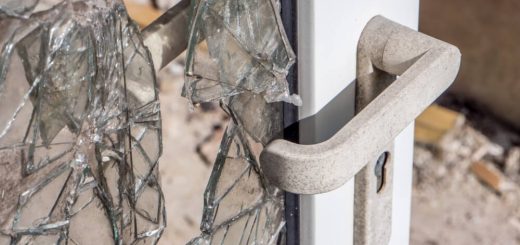Pension Protection in Bankruptcy

The world of finance has changed considerably over time. Rising interest rates have put families under strain to make ends meet, leaving some considering bankruptcy as their only viable option for financial relief. But does filing affect how much is saved towards retirement?
Even though it can be hard to predict the future, you can familiarize yourself with various financial alternatives before filing bankruptcy. Read further and gain knowledge of pension protection in bankruptcy proceedings, profit sharing arrangements and various retirement account accounts available to you.
What Protects an IRA From Creditors
First things first: you want to know whether and how an Individual Retirement Account (IRA) is protected from creditors. Protection can differ depending on its type and bankruptcy proceedings; generally speaking however, assets within an IRA account will generally be safeguarded up to certain financial limits from being subject to creditors’ claims.
Keep in mind that bankruptcy laws often change over time. The Bankruptcy Abuse Prevention and Consumer Protection Act BAPCPA provided federal protections for assets held within individual retirement accounts (IRAs). It also included various reforms like stricter guidelines for filing Chapter 7 bankruptcy filing.
No matter if it be Chapter 7 or 13, our experienced bankruptcy attorneys can help ensure you enjoy full protection of different qualified retirement accounts. Let us make sure your funds get the maximum return.
Pensions, 403b plans and 401ks as well as other employer-sponsored retirement plans have long been protected by bankruptcy rules; however, individual retirement accounts (IRAs) were only brought under federal protection through BAPCPA legislation introduced in 2005. How does it currently operate?
As part of declaring bankruptcy, RPP (registered company pension plans), RRSP (Registered Retirement Savings Plans), and LIRAs (Locked-In Retirement Accounts) cannot be taken from you; instead, any money that comes into these exempt accounts will be factored into calculating the bankruptcy threshold – but you’ll still receive enough to maintain yourself!
What Part of an IRA Is Protected?
While traditional and Roth IRAs provide some degree of protection, their level of security varies; thus raising the question “How Much Protection?”
The BAPCPA amends the bankruptcy code to protect assets held in Roth and regular IRAs up to one million dollars, subject to periodic inflation adjustments as determined by the Consumer Price Index for all urban consumers, to maintain their actual worth over time.
Since 2022, traditional and Roth IRAs are only protected when holdings totalling at most $1,512,350 across all retirement plans held by an individual – not per individual IRA account individually – rather than being subject to plan-specific exceptions or exemptions.
Notably, bankruptcy courts may provide additional protection if and when they deem it necessary or fairness demands it. Any additional funds from your plans beyond what was needed for filing can be given directly to the trustee and used towards paying off creditors – this applies for both traditional and Roth IRAs.
Federal law mandates that this amount increase every three years; its next scheduled change is set for 2025. As such, before filing bankruptcy it is wise to verify the exact amount. Furthermore, having an account dedicated to these assets ensures any IRA rollover from a qualified retirement plan will be protected in case of bankruptcy proceedings.
Are You Searching For Retirement Income Security?
Looking to protect your IRA funds from creditors? Washington, Arizona and Texas are considered among the best states to live in for employee retirement income security.
Under Arizona state laws, bankruptcy creditors are only authorized to pursue retirement accounts from contributions made within four months prior to bankruptcy filing – everything prior will have full legal protection.
Are IRAs safe from creditors in Hawaii? While traditional IRAs provide some protection, Roth IRAs don’t.
Can creditors seize my IRA?
In general, IRAs are protected from creditors under federal law, meaning they cannot seize them during bankruptcy proceedings.
Are you struggling to pay off debts and are wondering whether creditors could access your retirement accounts? Well, that will depend on whether they qualify under ERISA (the Employee Retirement Income Security Act).
This federal law regulates specific retirement accounts. Furthermore, ERISA helps protect assets from creditors seizing them; thus protecting you if you possess one or more qualified retirement accounts under its purview:
Related: What is protected in bankruptcy
Defined Benefit Plans
Employee Pensions that provide a regular benefit with fixed contributions made directly out of payroll checks by employees, including 403(b) plans as well as Roth and traditional 401(k)s. Defined Contribution Plans — Contributions taken directly out of payroll by employers are paid into these defined contribution plans with contributions taken directly out of employees paychecks as a fixed percentage contribution taken out. Likewise for Defined Benefit Plans with fixed benefits from employees while contributions taken directly from paychecks (401k/403(b/b/) plans).
ERISA may not provide coverage for all retirement accounts; this is especially true of brokerage accounts and non-retirement bank accounts. If your retirement savings are in investments accounts, regular savings accounts, or stock option plans, ERISA will not protect them.
Are IRAs Protected in Lawsuits?
Employer-sponsored retirement accounts (ERISA) provide some protection for individual retirement accounts; however, individual accounts (IRAs) do not exempt themselves from federal lawsuits which is why many opt for employer plans instead.
States vary on how IRAs are protected from lawsuits; while some offer full or partial protection, others provide only limited or no protection at all. No matter your state of residence, creditors cannot seize your retirement assets in case of nonpayment of credit card debt lawsuits.
Related: Average cost of filing bankruptcy



